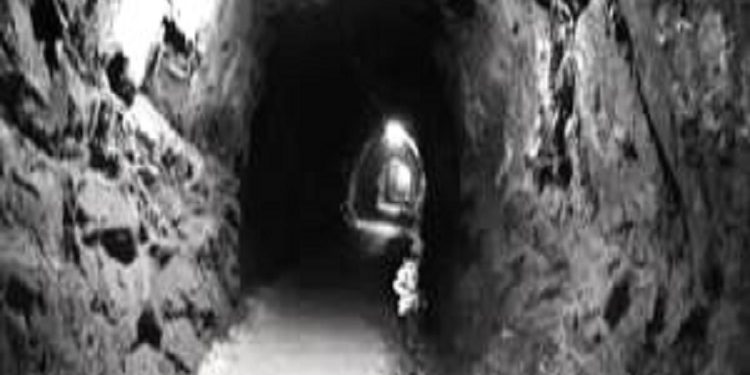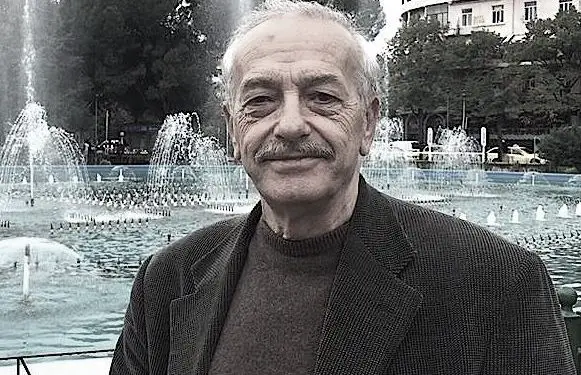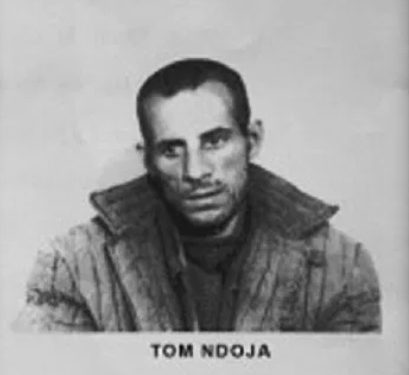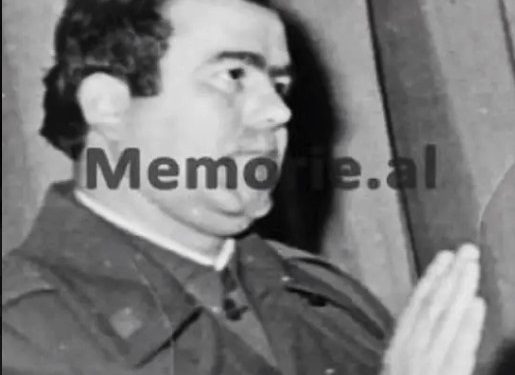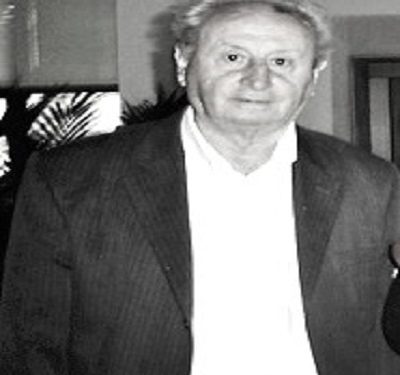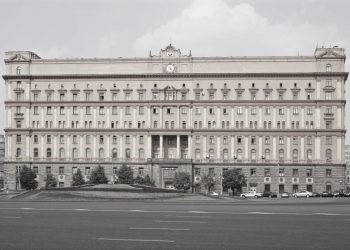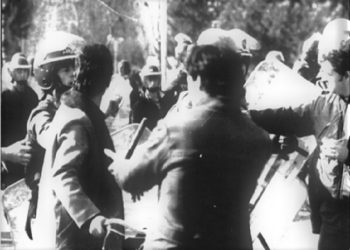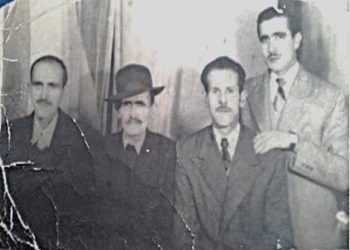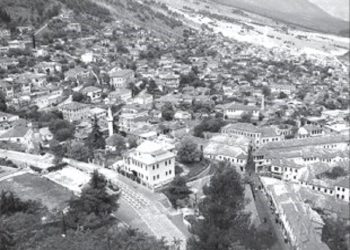By Maksim Rakipaj
Part twenty-one
Memorie.al/ Maksim Rakipaj, originally from Përmet, whose family had helped and supported the Anti-Fascist National Liberation War, after graduating from the Navy School in Vlorë, in 1972 he was appointed an officer in the Merchant Navy, where he served with dedication until in 1977, on the “Durrësi” steamer, he was arrested and sentenced to 15 years in political prison, as part of a “group”, which also included his colleague, Aladin Kapo, the son of Hysni Kapo’s brother. Family biography was also the reason for his punishment. After the end of the war, two of his uncles were sentenced to political prison, his grandfather was declared a kulak and in 1976, his father was expelled from the party. Maksi began serving his sentence in the Ballsh camp and in 1979, he was transferred to the Spaçi camp and then to the Qafë Bari camp. He was released on September 12, 1984, benefiting from a reduced sentence, from an amnesty. After being unemployed for a long time, with many hardships, he got a job as a miner in the Mzezet mine, he worked until 1991. After the 1991s, he started working in the administration of the Municipality of Durrës, he served until 1997 and after that, he returned to the Merchant Navy (the last captain of the transoceanic ship “Vlora”), until he left Albania for Italy, (illegally on a dinghy), where he currently lives for many years. Since the 90s, in addition to various jobs, Maksim Rakipaj has also devoted himself to writing, such as; poetry, prose, fiction or documentary, translations, etc., publishing several books, such as: ‘Prophet – Khalil Gibran’, (translation from English ‘Toena’ 2003), ’20 love poems and a song of sadness’, (translation from Spanish, ‘Toena’ 2003), ‘Alive after the shipwreck’, (published by ISKK, 2014), ‘Bukowski – poetry’, (translation from English, ‘ENEAS’, 2015), ‘Trilusa m’Tirône’, ( translation from Italian, ‘UEGEN’, 2015), ‘Anthology of Arabic-Persian Poetry’ (English translations, ‘UEGEN’, 2015), ‘The Complete Sonnets of Shakespeare’, (English translation, ‘ADA’ 2016′) , ‘Survivor’ (autobiographical novel, ‘2 East, 2 West’ 2018), ‘Nobelists – poetic anthology, (UEGEN 2019), ‘Hymn of happiness’ (‘JOZEF’ 2023), etc. From the creativity of Mr. Rakipaj, Memorie.al is publishing the book “Survivor”, (published in 2022 by “JOZEF” Publishing House in Durrës, directed by Mr. Aurel Kaçulini), where he has described his life chronologically, where the part the main one is that of serving the sentence in camps and prisons, as well as various characters, his co-sufferers that he met in the communist hell, etc.
Continues from last issue
First miner in Qaf-Bar and an offer
The transfer to Qaf-Bar turned out to be good for me. When I was told that I would be the only miner for the entire mine, I was afraid at first. In Spaç I was the worst miner, I barely made the norm, while here, I had to complete with beer, all the research fronts, as well as all the production fronts, or collapses, as we called them in the mining language, where there was a need for deep wells, reaching from 3, to 4, or 5 meters deep. In Spaç, these types of beer were made by the miners of the production, i.e., of the collapses.
They also brewed beer in vertical galleries, which we called furnaces. I saw those miners in Spaç as supreme, like Fadil Hyka, Bedri Blloshmi, Tom Ndoja, and many others. In addition to the difficulties and fatigue required by this specialty, the danger to life was greater, because you had to work always in danger, outside the part of the gallery, where you were protected by wooden or concrete armoring.
I did well; my work was measured by the amount of production that the brigade produced. Before starting work with the hammer, I checked the fronts, accompanied by the mine engineer and the foreman. One of those two assigned me the fronts where I had to make the beers. My work was giving good results, the engineer was enthusiastic about me, I took his hand and became almost independent. I often decided on my own where to brew. When the brigades with new people, brought from Spaçi, Zejmeni, etc., were added, the miners were also added. Thanks to the name that had me out, as an excellent miner(!), it was left to me, the first months, to choose the other miners.
The first one who asked me to intervene to start as a miner was Gëzim Medolli, with Tom Ndoja. Fortunately, the head of the Technical Office was my friend, Dalip Zhaboli, whom I had known since the Ballsh camp and he never bothered me. The command, as I have said, came as the command of a camp of ordinaries, its mind was only on the plan, and the plan was in the hands of the miners; if the beers they made gave abundant mineral, the realization of the plan was guaranteed. The camp commissar called us, all of us miners, to a meeting:
– “I have two things to talk about with you miners. Tell me what you need, I’ll give it to you and then we won’t talk, I want the plain. You speak with a mustache, because we have you as the first of the miners here”! – he addressed me.
– “If you want the plan, Mr. Commissioner, arrange our food. Grammars to be in order. The second; the store sells us only 100 gr. coffee per month. He orders that for the miners, at least 500 gr., 1 liter of olive oil. In addition, fruits, according to the seasons. Complete these and you have the plan in your pocket”, was my answer
It squirmed a little, no; “the country is in trouble, the people are drinking barley coffee”, but he gave us his word that he would try. To be honest, he kept his word and fulfilled all our requests. A lot of other friends came to me, as the days passed: Aladdin, Visari, Nuro Hoti, Agim Agaraj, Shefqet Kau came, but I’d better not try to remember them all, because I’m afraid that I won’t escape any of their names theirs. We were like a big family. The police treated us with respect. We followed the rules of the camp, we were fine with the plan, what more was needed?! The accompanying policeman of the brigade where I worked was always Beqir Biu.
One day I was miraculously saved from death, because for a while, an avalanche of rocks took me under me, while I was doing some deep, 4-meter holes. Policeman Beqiri was near the place where the collapse happened and helped me get out of the place where I was trapped. I had fallen, the carbide lamp, I was left with some stones, but I did not lose my cool. I got up with his help and we sat down in a safe place, further, to light a cigarette. I was checked, I had suffered nothing, except for a small scratch. Beqiri told me:
– “Listen to me Max, I’ve been thinking about something for a long time. I have the possibilities with the help, with the shot from the mine. He leaves his bones here, for a little while. You are young. Wake me up. You know that I have the camp commander’s sister as my wife, so my word is the law here. After a while, the chef is released. In his place, you put Aladdin and you, in Aladdin’s place, to the bread. The chef has his own room, far from the palace where the convicts sleep, we have a chance to drink a glass of brandy, rahat. I respect you and Aladdin. What do you have, leave this work in my hands? What do you say”?!
– “No, Beqo, it’s not a job to be done. I do not want. Thank you for the kind words and, to be honest, I call it an honor done by you, I’m glad it was done. But I started as a miner and I want to finish prison as a miner. You don’t know how the political prison works. Until today, you were an ordinary prison policeman. In political camps, it is different. I can’t tell you everything, I hope you understand. I am a political prisoner; you are a policeman. If you want the best for me, always keep me as a miner in your brigade and I will know it very much for honor”.
– “Yes, I have it for my own good, man of the earth. It’s not five minutes since you escaped death in vain! Do you know how many pieces I have taken out of the galleries…?!
– “How to write Beqo. I still have 7-8 years in prison. I do not care. Once again I say: thank you for the kind word”. – “As you wish. Fortunately, I had it”, and ran away happily.
INTERMEXO IV
From the free world, to the communist prisons of Enver Hoxha
- From Paris to Spac – “the French”
…In 1979, two Albanian brothers, who had been living in France for years, asked to be repatriated. They are originally from a village in Kukës, on the border with Prizren. Around the 60s, the two brothers, then 10-12 years old, were herding sheep as usual. Someone, who had set out to escape, takes them with him as a guide. They obey and accompany him to the border. For fear of reprimanding their parents, they never return home and continue on their way with the fugitive. H. and Mr. Spahiu end up in France. They finish compulsory education, grow up as French. They marry Albanian girls.
They live in Paris, happy with their families: one has two children, the other three. They only know Albania from the propaganda magazine “Alhqiperia Sot” and from those childhood memories, which nostalgia had erased the bitter part. They decided to return to their homeland, they had not committed any crime. They were minors when someone older than them forced them to cross the border. The Albanian ambassador in Paris assures them; that a happy life awaits them in the homeland. Less than a month after they set foot in their beloved homeland, both Spahiu brothers are arrested, sentenced to 10 years and brought to Spaç.
The accusation was the usual: “agitation and propaganda”. They have women and children in exile in the villages of Myzeqe. One day, both brothers meet their families. The wives and children have arrived, the eldest is 14 years old, born and raised in Paris. I congratulate them on the meeting and, as usual, I ask them: “How were you from home?” The children were fine”?
– “What did they say to you, brother…?! The big boy told me that he will alert public opinion, newspapers, TV…! He will organize protests, and he knows for himself that his father and his mother were unjustly imprisoned…! God, forgive me…!. It’s small, bro…! Are you telling me to go to jail, at this age…”?!
2- “Swedes”, “Americans” and others in our prisons
I knew a lot in the camps where I served the sentence, people who had escaped abroad and for various reasons, returned to Albania of their own accord. It turns out, when he returned, prison awaited him. In the Spaçi camp, there was Qani M., a Korçar, who lived for several years in the USA. He told me that he had met her, my mother’s uncle, there. Qaniu was engaged in buying and selling used cars.
This was his profession: he read in the newspapers, whoever had a car to sell, bought it to sell it to someone else at a higher price. Even the people he knew, he remembered from the cars they had. “I remember, Max, your mother’s uncle. He had a Lincoln, and he brought us Fan Nolin to the flag party in Boston! . . . A fine car, but it won’t do for Europe, because it’s too long”!
…Not everyone knows Qaniu’s name, more people know him as “the American”. He returned in 1963, after the amnesty that the Albanian state made the year before, according to which, all those who “did not stain their hands with blood during the War” could return to Albania. They killed him in prison, a few years after he returned to his homeland, the “American”.
In Spaç, there are also two “Swedes”, originally from a village in Vlora. Both with good biographies. One studied urban planning in Berlin (former East Germany), the other did military service at the border. They were close friends since childhood. After receiving the “excellent” diploma, urban engineer, he returned to Vlora, also went to his village. His friend had just finished the army and was working in the agricultural cooperative. Every time they met; the two friends talked about life outside:
– “More, East Germany too, it is a socialist state, like us, but here, they don’t let you do anything, take the bad! What life is done there and what life is done here…”?! They divided their minds, to escape. – “What do you have, I know the border with my eyes closed,” said the former border guard. They crossed into Yugoslavia and from there to Sweden, in Stockholm. He who studied in Berlin was recognized with a diploma as valuable and started work, in the Office of Urbanism in the Municipality of Stockholm. He was also able to organize his friend, in a job where he earned well. They were for beauty, they worked, they earned, they loved, they traveled around Europe, but they were not happy. They missed their country, parents, sisters, brothers, friends.
“What if they did something to them, after our escape”?! They had no connection with Albania, no letter, no phone, not even thought of in those years. They both decided to return. – “we’ll say we’re sorry, that we ran away, forgive us. And what will they do to us in the end, we didn’t kill anyone, you bastard”! They went to East Berlin. The Albanian embassy there also covered Sweden at that time. The ambassador refused to receive them. But the two friends did not give up. They went on vacation to Italy. They also went to our embassy in Rome several times, but in vain! One of the embassy drivers had asked them that; what was wrong with them “We want to return to our homeland,” they told him. “You know shit”, – the driver told them, – “why, you bastards, I’ve been in Sweden, you’re itchy, I went to jail, with your commies”?!
They were scared, but they did not change their minds. They decided to return one by one. The first one to come would send a photo of himself on his feet to the friend who would be waiting in Italy, if the situation, it would be okay. If he were to send a picture sitting down, he would say “what”, lying down, he would say “bad”. If within a week, there were no photos, it is understood: “I am in prison, go back to Sweden”. Finally, the ambassador welcomed them, congratulated them on the decision they had made and issued them visas for Albania. They welcomed him first in Rinas. They started beating him right there at the airport. Unconscious, he saw himself in prison. Again torture, electroshock, beating with a pickaxe…! “Where is your friend, why didn’t he come?! We will take his soul, if you don’t speak! In exile, we will kill the whole tribe…!”
They cleaned him of the blood, dressed him and took a beautiful picture of him standing in front of Skanderbeg’s horse. After a few days, the other one came. They were sentenced: one 15, the other 12 years in prison.
3 – The third “Swede” is coming…!
At the beginning of 1980, the autoburg brought another “Swede”. Hiqmeti got to know him from the beginning, he also introduced me. His name is Dilaver H. and he is Dibran. Dilaveri is very disoriented, although the investigator “helped” him to understand where he is. It shows that during the investigation, the investigator interrogated him, wearing Dilaver’s suits and shirts…! “You don’t need them anymore,” he said.
When he was finishing high school, Dilaveri dreamed of going to university, for foreign languages, but he didn’t get the right to study. I was very upset. He waited another year. The old man’s friends did not finish their work, as they had promised. The border was close, as bored as he was, he escaped. From Yugoslavia, he went to Sweden. It was settled in the city named Malmoe. He started working in a company that repaired and replaced door locks in private residences. He lived well. Being a phlegmatic type, he quickly adapted to Swedish society. “The Swedes are good people,” he said, “naive, they believe like children, whatever you tell them. They do not know the deceptions, the lies, which are common for us, or an Italian, for example”!
He met and fell in love with a local woman. He married her. She was the daughter of the mayor of the city. “We make movies come to life,” says Dilua. “We changed the cars, as if it were fashion, by color, brand, type”! My husband was really rich, but Dilua also earned well. “One summer”, – he said, – “we traveled all over Europe, following the coastline, in a white ‘Citroen’, they were very fashionable that year. We arrived in Ulcinj. We went to the border with my wife and I promised her that one day we would go to Albania together. I had nothing against the communist regime. My family was very connected to the party and the government. The only blot on the biography was my escape. I had good relations with the Albanian embassy in Stockholm.
They always called me when they needed a translator. When the State Song and Dance Ensemble came, I accompanied them. Even Vaçe Zela, I accompanied him, I even gave him the text of a Swedish song, I also translated it into Albanian. Vaçja learned it during the day. When he sang it in the evening, at the concert that the ensemble gave in Stockholm, he let it go. The Swedes were furious, after Vaçja…! My wife and I were in the first row. Even in the interview that Kadareja gave, for a Swedish newspaper and TV, I was the translator myself. I had hopes that one day, they would allow me to return. The woman thought we should spend half the year in Albania and half in Sweden. (“Far, O Dilo, fart,” Hiqmeti told him).
…Dilo’s wife died within a month from a galloping cancer
– “I was bored with life, – says Dilaveri – I was living in vain, like in a fog, without my wife. We were very close, I had wonderful memories with him. Everything I saw, it reminded me: every song I heard, every movie, every tree, road…! I decided to return to Albania. I sold everything: cars, houses, villas and made all the money. I put in the bank, more than half a million dollars. A Kosovar friend told me: “Don’t do it, they’re going to put him in jail, they’re going to take ours, whatever you have, they’re going to steal your panties.” You hit my head against the wall, you beast. I know very well what they do to the Kosovars, who are back there, but I’m telling you, they’re fucking your brains out, by the way! The ambassador gave me the visa right away. I thought I would make a tourist visit, since I had a Swedish passport.
I thought: I’m a Swedish citizen, I haven’t committed a crime in Albania, my mind is filling up, I’m staying… but I didn’t notice the note on the stamp that the ambassador put on the passport visa. They showed me in Rinas. It had written: ‘Reason of visit: Repatriation’. I had brought 7 large suitcases with my loot: 15 suits, who knows how many shirts and ties, gifts for my people, my girlfriend’s jewelry. When they took me out of the cornet, i.e., the Tirana prison, before I came to Spaç, they gave me an old sack: take your loot, they told me. Inside there was only a pair of old and worn jeans and two thick wool sweaters. I remembered the Kosovar, when he told me that they had stolen my panties as well… out of twenty pairs, I only had the ones I was wearing.”
– “Don’t worry, Hiqmeti said, – you still have half a million dollars. You will get out of prison someday.”
– “No, get Hikmet, no…! I have nothing now. When they took me to Rinas, they first sent me to an office in the Ministry of the Interior. There they forced me to sign a document, for my bank, where it was said that all my assets are transferred, with my full desire and will, to the ownership of the Albanian state. But I wrote a letter to the General Prosecutor and the Director of Prisons, that my luggage was stolen and my money was taken by fraud”.
– “Ahahaha, this is beautiful! You complained to Ali Baba that his thieves stole from you! You are tired for nothing, cuckoo. Aman, what did that Kosovar say to you in Sweden, what did he say to you?! You’re a fart, swear”?!
The Director of Prisons, Kasëm Kaçi, came to Spaç. He called Dilaveri to the meeting. Dilaveri went with all his heart.
– “You are Dilaver H., who made these letters”?!
– “As you command. I am and I want to tell you Mr. Director that…!
– “Shut up, because I’m talking for once!” Why don’t you tell me, how did you come here from Sweden? We brought you tied up, or did you come of your own free will, eh”?!
– “I came of my own accord, but…”!
– “What the hell are you looking for then!? Run fart, because you broke our ass! Go away, I told you, walk. Run away with your feet, because there is another way, you know…”!
– “As you order, I know…”!
Dilaveri went down to the camp. He didn’t seem that upset. He seemed more shocked: “I can’t believe it… this is a country that was run by thugs”?! /Memorie.al
The next issue follows




